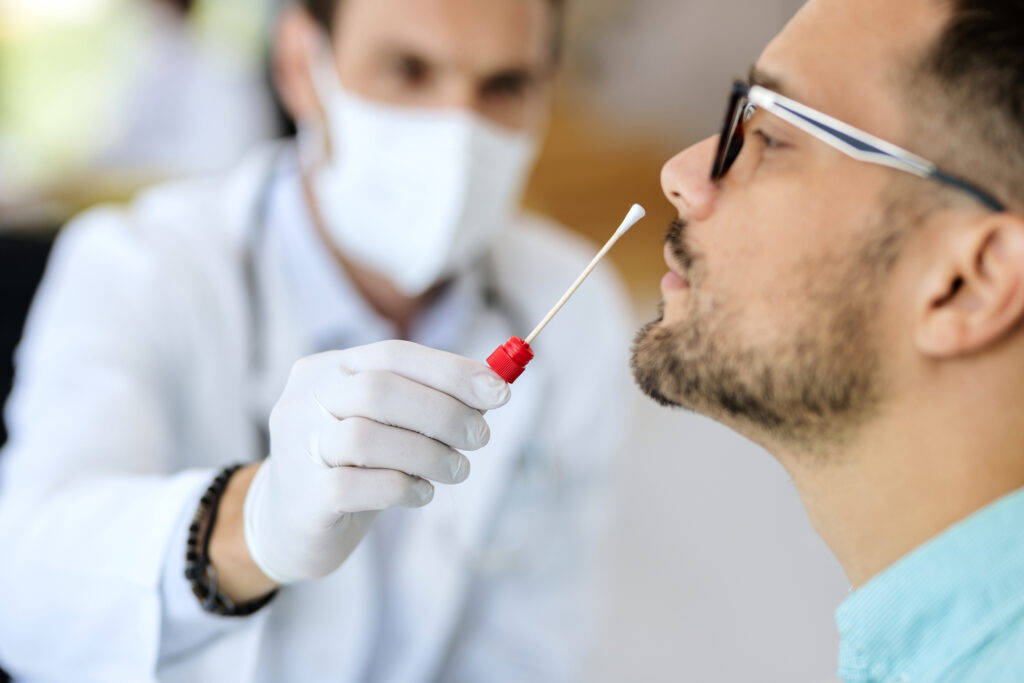Travelers entering U.S. will soon need a negative COVID-19 test (yes, even Americans)
Signing up for credit cards through partner links earns us a commission. Terms apply to the offers listed on this page. Here’s our full advertising policy: How we make money.
Joining the throngs of other countries around the globe, the U.S. plans to implement strict coronavirus testing requirements for anyone desirous to enter its borders — including American citizens returning from abroad, per a new order from the Centers for Disease Control and Prevention.
This development is something to take very seriously as you plan any upcoming travel. While those averse to testing could previously travel to a country like Mexico or Costa Rica, this new ruling means you’ll have to get tested if you want to come home.
Here’s what you need to know.

U.S. to require Coronavirus testing for entry
Beginning Jan. 26, 2021, the U.S. will require a negative COVID-19 test result taken no more than three days from your departure date.
There are a few different tests you can take, including rapid antigen tests and polymerase chain reaction (PCR) tests. Notably, antibody tests are not one of the approved tests. You’ll need to provide the airline written documentation of your negative test result before you board the aircraft.
Remember, once you’ve had the coronavirus, you may continue to test positive even after you’ve had it. The CDC, therefore, has approved entry for anyone who provides documentation confirming that they’ve recovered.
Per the order, airlines must deny boarding to passengers if they cannot provide documentation of a negative test result or recovery.
“Testing before and after travel is a critical layer to slow the introduction and spread of COVID-19,” says the CDC media statement from Jan. 12, 2021. “Pre-departure testing with results known and acted upon before travel begins will help identify infected travelers before they board airplanes.”
The CDC recommends getting tested again within three to five days after you’ve landed back in the country. They also recommend staying home for seven days after your trip.
Millions and millions of Americans have no interest in traveling internationally anyway at the moment — and haven’t been interested since March. If you do decide to fly, you’ll want to understand if it’s safe for you to fly amid coronavirus and if it’s possible to socially distance on a plane.
With domestic travel rebounding, the U.S. has also created some interior testing policies for those traveling to certain states. For example, New York requires all entrants to provide negative tests, and Alaska requires the same — or test when you arrive and quarantine until you get your results. You’ll want to research local guidelines before your trip to see what’s required.
If you do travel internationally, make sure to identify testing sites in the area you’re visiting. If possible, book an appointment in advance to ensure you’ll be able to get on your flight back to the U.S.
Bottom line
Make your international plans wisely! You have until Jan. 26, 2021, to enter America’s borders without taking a test. You don’t want to be caught ignorant at your international gate and denied boarding because you forgot the new mandate.
You’ll need to find a testing location in the country you visit and ensure you take your test within three days of departure.
For more need-to-know travel tips in the time of coronavirus, you can subscribe to our newsletter and we’ll make sure we let you know with plenty of time to spare.
Editorial Note: We're the Million Mile Secrets team. And we're proud of our content, opinions and analysis, and of our reader's comments. These haven’t been reviewed, approved or endorsed by any of the airlines, hotels, or credit card issuers which we often write about. And that’s just how we like it! :)






Join the Discussion!